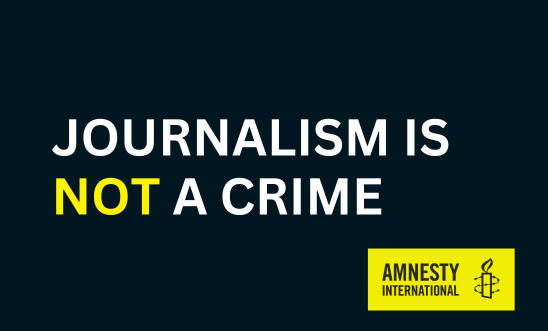
Press releases
Northern Ireland: Police ‘have serious questions to answer’ in press freedom case

Investigatory Powers Tribunal for journalists Trevor Birney and Barry McCaffrey starts tomorrow (Tuesday) with cross-examination of witnesses
London court hearing looking into claims the two Belfast journalists were secretly monitored by UK authorities
Police Service of Northern Ireland, Durham Constabulary, Metropolitan Police, MI5 and GCHQ among the respondents
Case will test legal safeguards for all UK journalists against unwarranted surveillance and right to protect sources
‘This is a crucial case for press freedom in the UK’ – Patrick Corrigan, Amnesty International
The Investigatory Powers Tribunal (IPT) will examine a complaint by two journalists who asked it to find out whether police from Northern Ireland and Durham used intrusive surveillance powers against them. The tribunal starts on Tuesday 1 October at the Royal Courts of Justice in London.
The tribunal will hear oral evidence from retired Durham police officer Darren Ellis, who was the chief investigating officer during the criminal investigation into journalists, Trevor Birney and Barry McCaffrey, who were arrested in 2018 in connection to their work investigating the 1994 Loughinisland massacre.
The pair filed a complaint with the IPT after a court in Belfast ruled the 2018 search warrants and arrests were unlawful. The tribunal has already discovered the police attempted to access Mr McCaffrey’s phone on at least five occasions over the course of ten years to secretly identify his sources while he was investigating potential police corruption.
In June, it emerged that the PSNI has made more than 320 applications to access the communications’ data of journalists over the past 13 years and 500 applications for data relating to lawyers.
The PSNI has also now admitted that in the period 2011-2024, they authorised the use of four informants or undercover officers “in respect of journalists or lawyers”.
The journalists hope the IPT hearing will reveal the full extent of the covert and intrusive surveillance used against them by the police and other state authorities.
Amnesty International is attending the hearing and working to ensure full disclosure of the extent of spying on journalists by police and the security services.
Patrick Corrigan, Amnesty International’s Northern Ireland director, said:
“This is a crucial case for press freedom in the UK.
“The police have serious questions to answer about the secret surveillance of journalists in Northern Ireland.
“The evidence speaks for itself. There’s a highly disturbing pattern of covert surveillance of journalists and others and a cavalier approach by the police to freedom of the press.
“We now need full disclosure of the extent of secret surveillance against journalists and an end to the apparent routine practice of treating reporters as criminal suspects.”
EDITOR’S NOTE
There is a solidarity gathering outside the Royal Courts of Justice at 9.45am on Tuesday 1 October, with the journalists and their supporters holding ‘Journalism Is Not A Crime’ signs.
The tribunal is scheduled to take place from Tuesday 1 to Friday 4 October at the Royal Courts of Justice (RCJ) in London. The hearing will start on Tuesday morning at 10.30am in court 72. For access to watch the proceedings online, email the IPT media team: mediaenquiries@ipt-uk.com